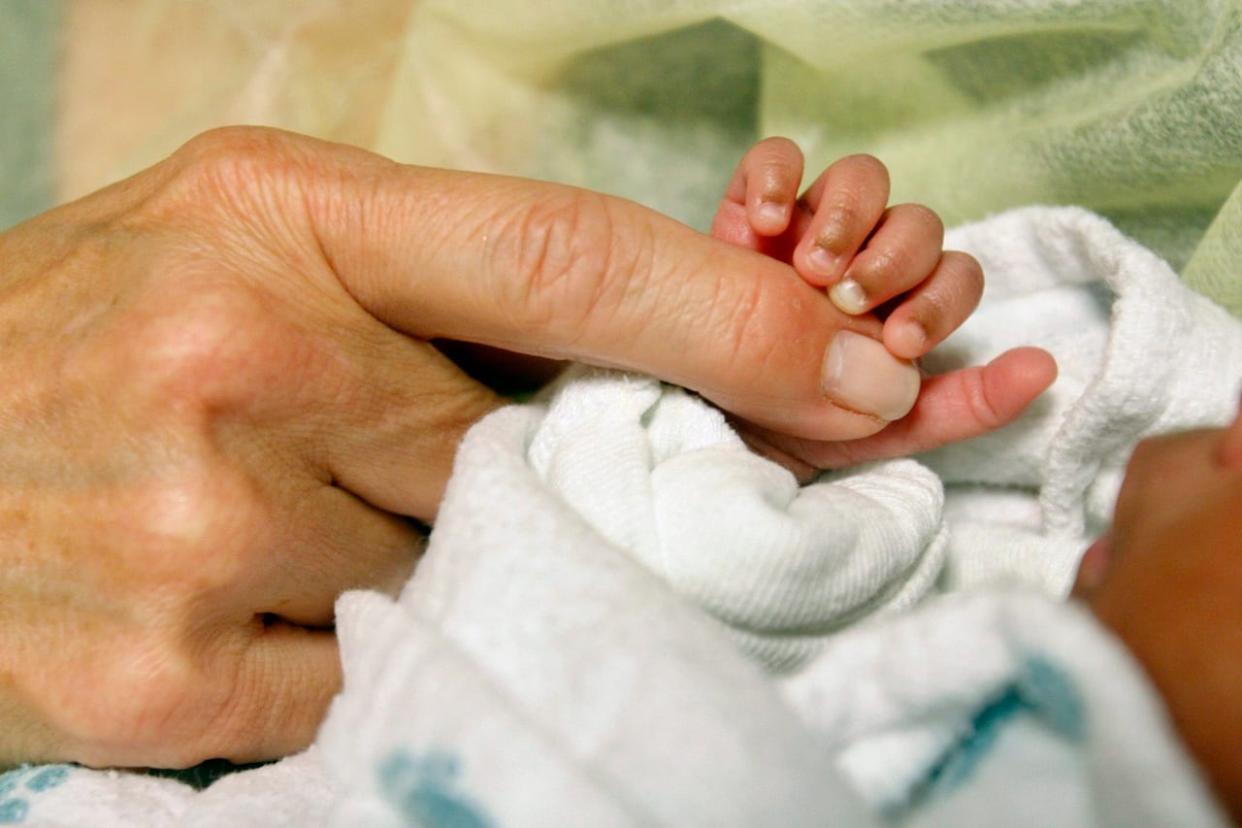Alberta records its highest number of stillbirths since at least 2005

Dr. Stephanie Cooper has seen the many, sometimes unexplainable, ways a family loses a child to stillbirth.
"I've had to deliver many stillbirths, and it's tragic every single time," she told CBC News.
Cooper is a Calgary obstetrician who specializes in high-risk pregnancies.
She, along with other medical professionals and advocates, is concerned by data from the Alberta government, which shows a steady increase in the number of stillbirths in the province in recent years and an alarming increase in the rate of stillbirth deaths in younger women.
Data from Alberta Health shows 454 stillbirths recorded in 2023 — more than any other year in the province's dataset dating back to 2005.
While the number of stillbirths dropped to 257 in 2011, there has been a steady increase from 2019 to 2023.
When a person has been pregnant for 20 weeks or longer and the baby dies before or during birth, it is called a stillbirth, according the Alberta government. In about one in four stillbirths, the cause is not known.
What story do the numbers tell?
A spokesperson for the province says the government is investigating the increase.
Cooper said it is challenging to pinpoint major factors in stillbirths, taking into account a variety of circumstances like congenital illnesses, gaps in prenatal care and socioeconomic barriers.
"This type of population data ... suggests that there's trends, but it doesn't necessarily tell us what the problem is," Cooper said.
"Sometimes these are just statistical blips, and sometimes it's the way that the data is reported."
However, Cooper said the data is significant because it signals that changes are needed.
A further look at the numbers also shows concerning trends for different age demographics.
The rate of stillbirths per 1,000 total births among young women from the ages of 15 to 19 has quadrupled from 2017 to 2023.
In 2017, the rate of stillbirths per 1,000 births among young women was 5.96. The rate rose sharply in 2018 to 15.98 and then to 26.32 in 2023.
Women between the ages of 40 and 49 have also consistently seen higher rates of stillbirths, according to data.
"There has always been this understanding that ... pregnancies get higher risk as women get older," said Cooper, who said the risk typically prompts women of this age bracket to seek care proactively and be attended to by medical professionals.
It can be a different situation for young girls and women.
"A lot of the pregnancies in the very young women are unplanned pregnancies. And we know that when a pregnancy is unplanned that there is going to be likely some issues."
Rising tide of congenital syphilis
Dr. Joan Robinson specializes in pediatric infectious diseases at Stollery Children's Hospital in Edmonton and said the present outbreak of syphilis, both provincially and nationally, is a concerning factor in contributing to stillbirths.
"This is especially a problem in Alberta from 2019 on congenital syphilis is a totally preventable problem," she said in an interview with CBC.
If syphilis is caught during prenatal screening, it is preventable and treatable with antibiotics.
However, Robinson said socioeconomic factors can impede someone's ability to get care/
"It's very much a social problem that we're not doing enough about."
CBC requested information from Alberta's health ministry on the number of syphilitic stillborn cases.
Between 2014 and 2017, no confirmed or probable cases were reported in Alberta.
That changed in 2018, with one stillbirth recorded before a sharp increase in 2019 with 14 cases of syphilitic stillborns.
The number of cases has remained over 10 since 2019.
Alberta's chief medical officer of health declared a syphilis outbreak in July 2019.
Stigma and stillbirth
In a statement to CBC, Alberta's health ministry press secretary Andrea Smith said that an investigation was ongoing into the causes of stillbirth.
"Investigation into the causes of the increase is ongoing and includes analyzing and monitoring trends of well-established risk factors for stillbirths, assessing data quality issues and changes in criteria for registering stillbirths, as well as conducting epidemiologic analysis to analyze determinants for stillbirths and identify causes for elevated rates."
Alberta Health provides $1 million for a prenatal syphilis outbreak response project led by AHS, which includes support for increased access to testing and treatment in Edmonton and northern regions.
In early May, the provincial government announced it is spending $6 million to expand the Alberta Newborn Screening Program, which tests babies for a number of conditions.
The Pregnancy and Infant Loss Support Centre in Calgary is one of a handful of organizations across the province which offer specific support for people experiencing different types of pregnancy loss.
"Affordability, there's lack of doctors ... lack of health care ... substance use due to the lack of affordability. So it's kind of this really big intersectional system," CEO Aditi Loveridge told CBC, adding that the charity saw just over 1,2000 families in the past year.
Loveridge said the charity's work with families has shown there remains a stigma when it comes to talking about stillbirth because there can be a tendency to view the matters of birth through a "black and white lens."
"If there's anything in their history that may or may not have contributed to a stillbirth, that's going to just contribute more to that guilt and shame, 'this was my fault.'" Loveridge said.
"We need to let go of the judgment, and we need to start getting behind and actually supporting these folks."

 Yahoo News
Yahoo News 
